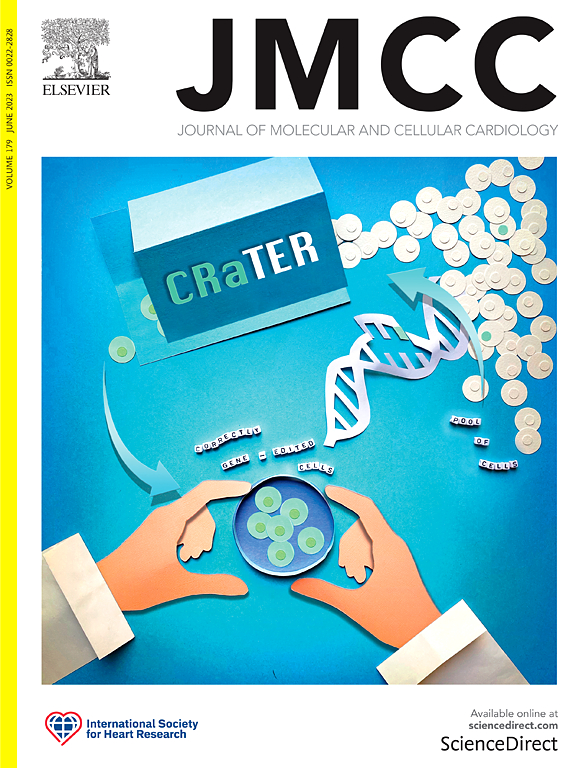METTL3-mediated N6-methyladenosine modification contributes to vascular calcification
IF 4.7
2区 医学
Q1 CARDIAC & CARDIOVASCULAR SYSTEMS
引用次数: 0
Abstract
Aim
Vascular calcification (VC) is a major adverse cardiovascular event in chronic kidney disease (CKD) patients. N6-methyladenosine (m6A) modification is vital for many biological processes, but its function and possible molecular mechanisms in VC are poorly understood. This study aimed to clarify the function and molecular mechanisms of N6-adenosine-methyltransferase-like 3 (METTL3) in VC.
Methods and results
The results of the bioinformatic analysis showed that METTL3 expression was significantly upregulated in calcified VSMCs. This finding was corroborated by phosphate-induced VSMCs calcification models and 5/6 nephrectomy-induced CKD mouse VC models. Afterward, Alizarin Red S staining and m6A dot blot analysis demonstrated METTL3 overexpression elevated m6A levels and encouraged calcification in VSMCs and mouse aortic rings, while METTL3 knockdown decreased m6A levels and inhibited calcium deposition in these experimental models. Furthermore, METTL3 promoted VC via the PTEN/AKT pathway, and MeRIP verified that METTL3 induced PTEN mRNA degradation by modifying it with m6A. In addition, molecular docking simulations and DARTS assays revealed that quercetin is a natural small-molecule inhibitor of METTL3. The current investigation demonstrated that quercetin mitigated VC by reducing METTL3-dependent m6A levels in vivo and in vitro.
Conclusion
In conclusion, this study unraveled the pathogenic mechanism of METTL3-mediated m6A modification in VC and provided new insights to establish METTL3 as a therapeutic target for VC.

mettl3介导的n6 -甲基腺苷修饰有助于血管钙化
血管钙化(VC)是慢性肾脏疾病(CKD)患者的主要不良心血管事件。n6 -甲基腺苷(m6A)修饰对许多生物过程至关重要,但其在VC中的功能和可能的分子机制尚不清楚。本研究旨在阐明n6 -腺苷-甲基转移酶样3 (N6-adenosine-methyltransferase-like 3, METTL3)在VC中的作用及其分子机制。方法与结果生物信息学分析结果显示,钙化VSMCs中METTL3表达明显上调。磷酸盐诱导的VSMCs钙化模型和5/6肾切除术诱导的CKD小鼠VC模型证实了这一发现。随后,Alizarin Red S染色和m6A点印迹分析显示,METTL3过表达升高了m6A水平,促进了VSMCs和小鼠主动脉环的钙化,而METTL3敲低则降低了m6A水平,抑制了钙沉积。此外,METTL3通过PTEN/AKT通路促进VC, MeRIP证实METTL3通过m6A修饰PTEN mRNA诱导其降解。此外,分子对接模拟和DARTS实验显示槲皮素是天然的METTL3小分子抑制剂。目前的研究表明,槲皮素通过降低体内和体外mettl3依赖性m6A水平来减轻VC。综上所述,本研究揭示了METTL3介导的VC中m6A修饰的致病机制,为建立METTL3作为VC的治疗靶点提供了新的见解。
本文章由计算机程序翻译,如有差异,请以英文原文为准。
求助全文
约1分钟内获得全文
求助全文
来源期刊
CiteScore
10.70
自引率
0.00%
发文量
171
审稿时长
42 days
期刊介绍:
The Journal of Molecular and Cellular Cardiology publishes work advancing knowledge of the mechanisms responsible for both normal and diseased cardiovascular function. To this end papers are published in all relevant areas. These include (but are not limited to): structural biology; genetics; proteomics; morphology; stem cells; molecular biology; metabolism; biophysics; bioengineering; computational modeling and systems analysis; electrophysiology; pharmacology and physiology. Papers are encouraged with both basic and translational approaches. The journal is directed not only to basic scientists but also to clinical cardiologists who wish to follow the rapidly advancing frontiers of basic knowledge of the heart and circulation.

 求助内容:
求助内容: 应助结果提醒方式:
应助结果提醒方式:


